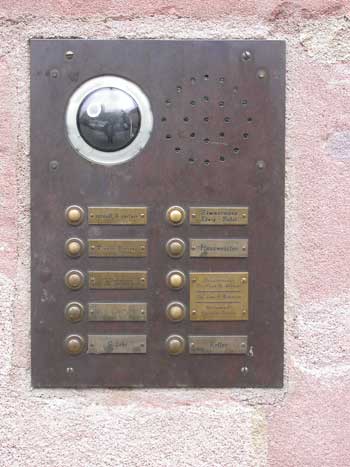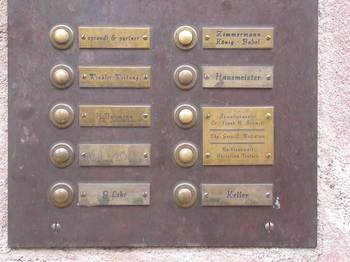bq. Am Sonntag gehen Vater und Sohn regelmäßig in den Sprachzoo. Dort schauen sie sich vom Aussterben bedrohte grammatische Phänomene an. Am liebsten mögen sie den Konjunktiv. Gerne hülfen sie ihm, denn sie haben Angst, er stürbe aus.
Zwiebelfisch im Spiegel Online
bq. “Spräche jeder so wie du, lieber Henry, schwämmen mir als Kolumnisten die Felle davon”, erwidere ich augenzwinkernd. “Schwämmen oder schwömmen?”, fragt Henry, und schon stecken wir mitten im Sumpf der unregelmäßigen Verben. “Büke der Bäcker sein Brot mit mehr Gefühl, verdürbe es nicht so schnell”, sagt Henry. “Spönnest du weniger, so stürbe ich nicht gleich vor Lachen!”, entgegne ich. “Hübe jeder seinen Müll auf, gewönne die Stadt an Lebenswert”, kontert Henry. “Gnade!”, rufe ich, “das ist ja nicht mehr auszuhalten! Hübe heißt es ganz bestimmt nicht*!” – “Das ist veraltet”, sagt Henry, “aber was alt ist, muss nicht gleich falsch sein. Kennte ich noch mehr alte Konjunktive, so würfe ich sie liebend gerne ins Gespräch ein!”
Even more important is the use of the two different subjunctive forms in reported speech – every journalist has to know them well.
Subjunctive is pretty rare in English now, slightly less so in the USA than in Britain. There are formulaic expressions like ‘God save the Queen’ (Gott schütze…, not, surprisingly enough, Gott rette…!), ‘Be that as it may’, there’s the hypothetical ‘If I were you’, although ‘If I was you’ is not wrong, just a stylistic choice, there’s the concessive subclause such as ‘…though the price be high’, and there’s the mandative (common in US English) ‘It is necessary that every member inform himself or herself of these rules’.
(via Kaltmamsell)



